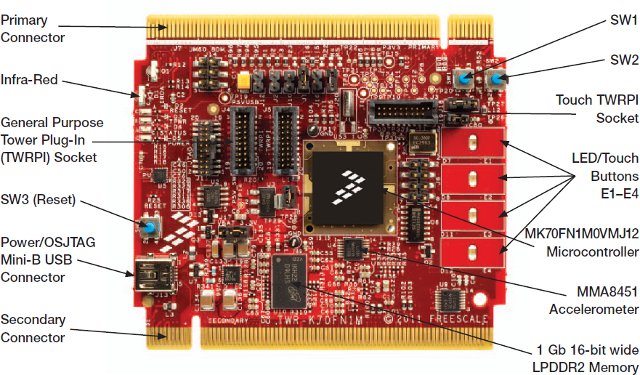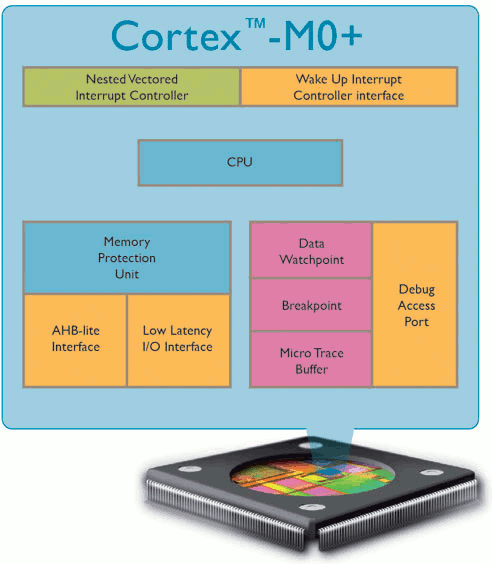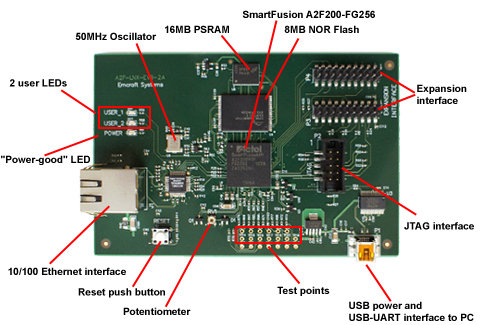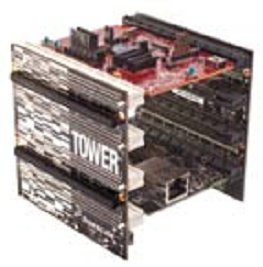Last week at Design West 2012, Green Hills Software announced it had achieved the highest compiler performance scores ever certified by EEMBC CoreMark and that it outperformed the nearest competing compilers by 35.5% using its MULTI 6.0 – Compiler 2012. Benchmarks were completed on 3 ARM Cortex-M4 microcontrollers: Freescale Kinetis K60 MCU @ 100 Mhz – 35.5% improvement over nearest competitor. Freescale Kinetis K70 MCU @ 120 Mhz – 29.6% improvement over nearest competitor. STMicroelectronics STM32F417IGt6 @ 168 MHz – 34.7% improvement over nearest competitor. Since apparently it’s bad marketing to name competitors in press releases, I went directly to the source (EEMBC Coremark benchmark results) to check out the results and competitors (IAR and Keil) for Kinetis K60 MCU. The first thing you may notice is that there are 2 tests per compiler / MCU combination. That’s because there 2 test configurations: Code in internal Flash – Data in internal […]
uClinux Running on Freescale Kinetis K70 MCU (Cortex-M4) Module
Last year, I posted about Linux for Cortex M3 & M4 Micro-controllers and noted it was difficult to find cost effective Cortex-M based boards able to run uClinux or Linux (RAM being the main issue). Freescale TWR-K70F120M is a module based on Kinetis K70 MCU (Cortex M-4) with plenty of RAM (128MB) to run Linux or uClinux. It is available for 109 USD or 179 USD with Freescale Tower system (TWR-K70F120M-KIT). Here are the key features of the module: Freescale MK70FN1M0VMJ12 Cortex-M4 MCU @ 120 MHz (Product Brief) Touch Tower Plug-in Socket General purpose Tower Plug-in (TWRPI) socket On-board JTAG debug circuit (OSJTAG) with virtual serial port 128 MB DDR2 SDRAM memory 256 MB SLC NAND flash memory Three axis accelerometer (MMA8451Q) Potentiometer Micro-SD Card slot I could not find an open source uClinux implementation for Kinetis K70, but emCraft has a Linux Board Support Package (BSP) for the Freescale TWR-K70F120M-KIT […]
ARM Announces ARM Cortex-M0+ Core to Power the Internet of Things
ARM has just unveiled the ARM Cortex-M0+ 32-bit processor optimized to deliver ultra low-power and low-cost MCUs to power the ‘Internet of Things‘ by controlling connected intelligent sensors and smart control systems in a broad range of applications including home appliances, white goods, medical monitoring, metering, lighting and power and motor control devices. ARM claims the Cortex-M0+ consumes just 9µA/MHz on a low-cost 90nm LP process, around one third of the energy of any 8- or 16-bit processor available today, while delivering significantly higher performance (1.77 CoreMark/MHz). Beside the low power consumption, the main advantage of the Cortex-Mo+ over 8-bit and 16-bit MCUs , is that it can provide low power wireless connectivity to a variety of embedded systems such as wireless sensors. The new processor is based on Cortex-M0 processor but has been redesigned to include a few new features such as: Single-cycle IO to speed access to GPIO […]
Linux for Cortex M3 & M4 Microcontrollers
There are plenty of low cost Linux development boards based on Cortex A8 or A9 such as the Beaglebone, as well as some devkits based on ARM7 and ARM9 such as SAM9 development kits , but if your application is cost and/or energy sensitive you can also switch to micro-controllers using Cortex M3 or M4 based development boards such as Emcraft SmartFusion devkits. You can run a functional uCLinux system with 1MB of RAM and 1MB of flash including the TCP/IP stack. You need to use uClinux and not directly Linux, because the Cortex M3 doess not have a Memory Management Unit (MMU) and only a Memory Protection Unit (MPU). This can bring some interesting software development challenges such as (apparently random) kernel panics, the lack of fork, memory fragmentation and more. You can check out http://kernel.org/pub/linux/libs/uclibc/Glibc_vs_uClibc_Differences.txt for the main differences between uClibc and Glibc. The instructions to patch and […]
Brew Your Own Beer with Freescale Kinetis Cortex M4 MCU
This brewing system is part of top three designs for Freescale Make It Challenge: Kinetis MCUs. The two other designs are an Automobile Collision Detector and a “Swiss Army Knife” for the Blind . This design utilizes Freescale’s Kinetis K60 Tower System with MK64M512 Cortex M4 MCU and FreeRTOS operating system. This could become a beer brewing appliance with the target market being home brewers and small brewpubs and restaurants. Matthew Pratt (the one who design this system) says current hone brewing systems sell for about 10,000 USD. The sweet wort production process can be labor-intensive, requiring precise control of temperatures and transition times (It takes 4 to 5 hours for 5 gallons of beer). The Kinetis Beer Brewing System automates the process from the initial filling of water to the beer being ready to be cooled and yeast added. The user only needs to add the ingredients, malt and […]






